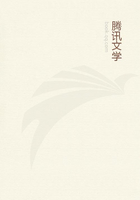
第7章
Wages represent also wage-labor,which is examined in a different section;the particular function that labor performs as a factor of production in the one case appears as a function of distribution in the other.If labor did not have the distinct form of wage-labor,then its share in the product would not appear as wages,as for instance in slavery.Finally,rent --if we take the most advanced form of distribution by which landed property obtains a share in the products --presupposes large-scale landed property (strictly speaking,large-scale agriculture)as a factor of production,and not land in general;just as wages do not presuppose labor in general.The relations and modes of distribution are thus merely the reverse aspect of the factors of production.An individual whose participation in production takes the form of wage-labor will receive a share in the product,the result of production,in the form of wages.The structure of distribution is entirely determined by the structure of production.distribution itself is a product of production,not only with regard to the content,for only the results of production can be distributed,but also with regard to the form,since the particular mode of men's participation in production determines the specific form of distribution,the form in which they share in distribution.It is altogether an illusion to speak of land in the section of production,and of rent in the section on distribution,etc.
Economists like Ricardo,who are mainly accused of having paid exclusive attention to production,have accordingly regarded distribution as the exclusive subject of political economy --for they have instinctively treated the forms of distribution as the most precise expression in which factors of production manifest themselves in a given society.
To the single individual,distribution naturally appears as a social law,which determines his position within the framework of production,and within which he produces;distribution thus being antecedent to production.An individual who has neither capital nor landed property of his own is dependent on wage-labor from his birth as a consequence of social distribution.But this dependence is itself the result of the existence of capital and landed property as independent factors of production.
When one considers whole societies,still another aspect of distribution appears to be antecedent to production and to determine it,as though it were an ante-economic factor.
-A conquering nation may divide the land among the conquerors and,in this way,impose a distinct mode of distribution and for of landed property (thus determining production).Or,-it may turn the population into slaves,thus making slave-labor the basis of production.Or,-in the course of a revolution,a nation may divide large estates into plots,thus altering the character of production in consequence of the new distribution.Or,-legislation may perpetuate land ownership in certain families,or allocate labor as a hereditary privilege,thus consolidating it into a caste system.
In all these cases (and they have all occurred in history)it seems that distribution is not regulated and determined by production but,on the contrary,production by distribution.
Distribution,according to the most superficial interpretation,is distribution of products;it is thus removed farther from production and made quasi-independent of it.But,before distribution becomes distribution of products,it is (1)distribution of the means of production,and (2)(which is another aspect of the same situation)distribution of the members of society among the various types of production (the subsuming of the individuals under definite relations of production).
It is evident that the distribution of products is merely a result of this distribution --which is comprised in the production process and determines the structure of production.To examine production divorced from this distribution which is a constituent part of it,is obviously idle abstraction;whereas conversely the distribution of products is automatically determined by that distribution which forms a primary factor of production.Ricardo,the economist of production par excellence,whose object was the understanding of modern production and of its distinct social structure,for this very reason declares that distribution,notproduction,is the proper subject of contemporary political economy.This is a witness to the banality of those economists who proclaim production as an eternal truth,and confine history to the domain of distribution.
The question as to the relation between that form of distribution that determines production and production itself,belongs obviously to the sphere of production.If it should be said that,in this case at least,since production must proceed from a specific distribution of the means of production,distribution is to this extent antecedent to,and a prerequisite of,production,then the reply would be as follows.
Production has indeed its conditions and prerequisites which are constituent elements of it.At the very outset,these may have seemed to be naturally evolved.In the course of production,however,they are transformed from naturally evolved factors into historical ones,and,although they may appear as natural preconditions for any one period,they are the historical result of another period.For example,the employment of machinery led to changes in the distribution of both the means of production and the product.Modern,large-scale landed property has been brought about not only by modern trade and modern industry,but also by the application of the latter to agriculture.